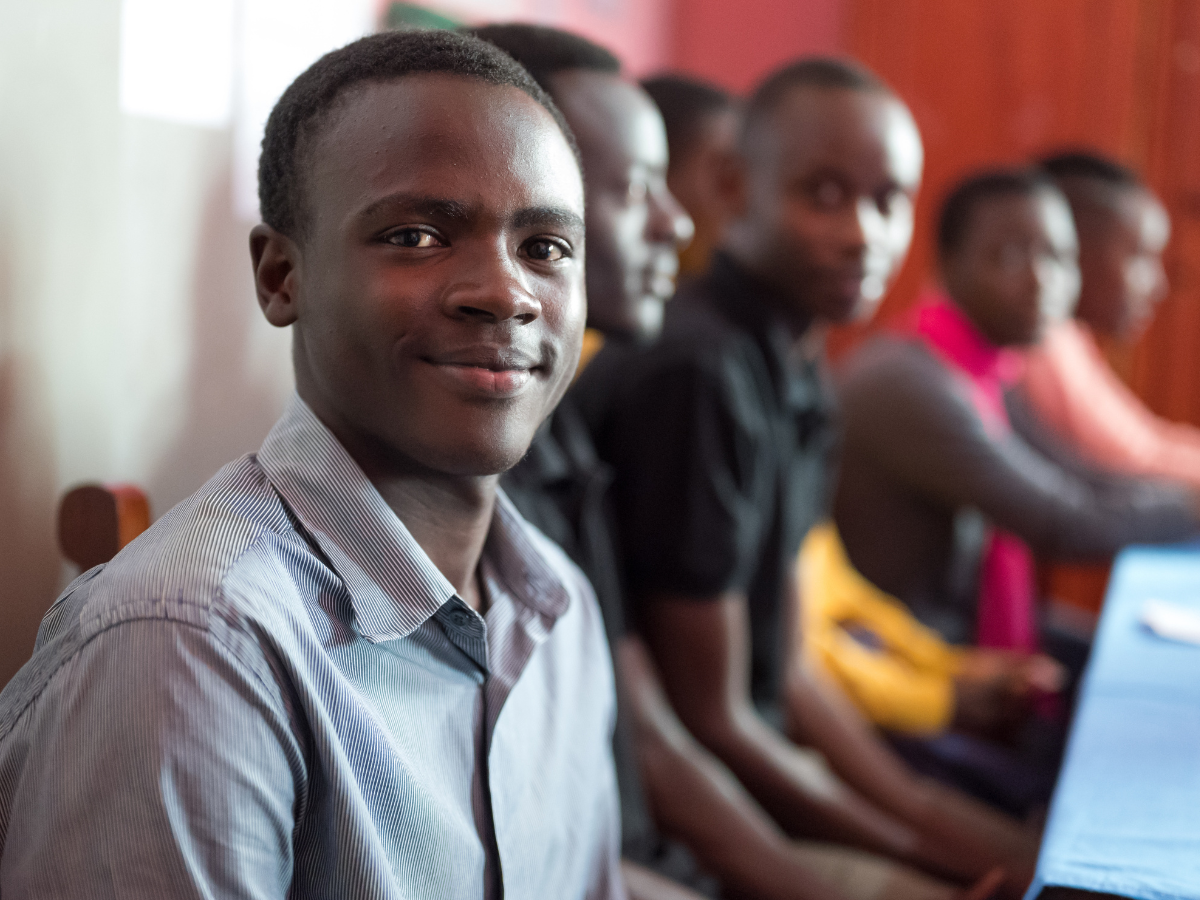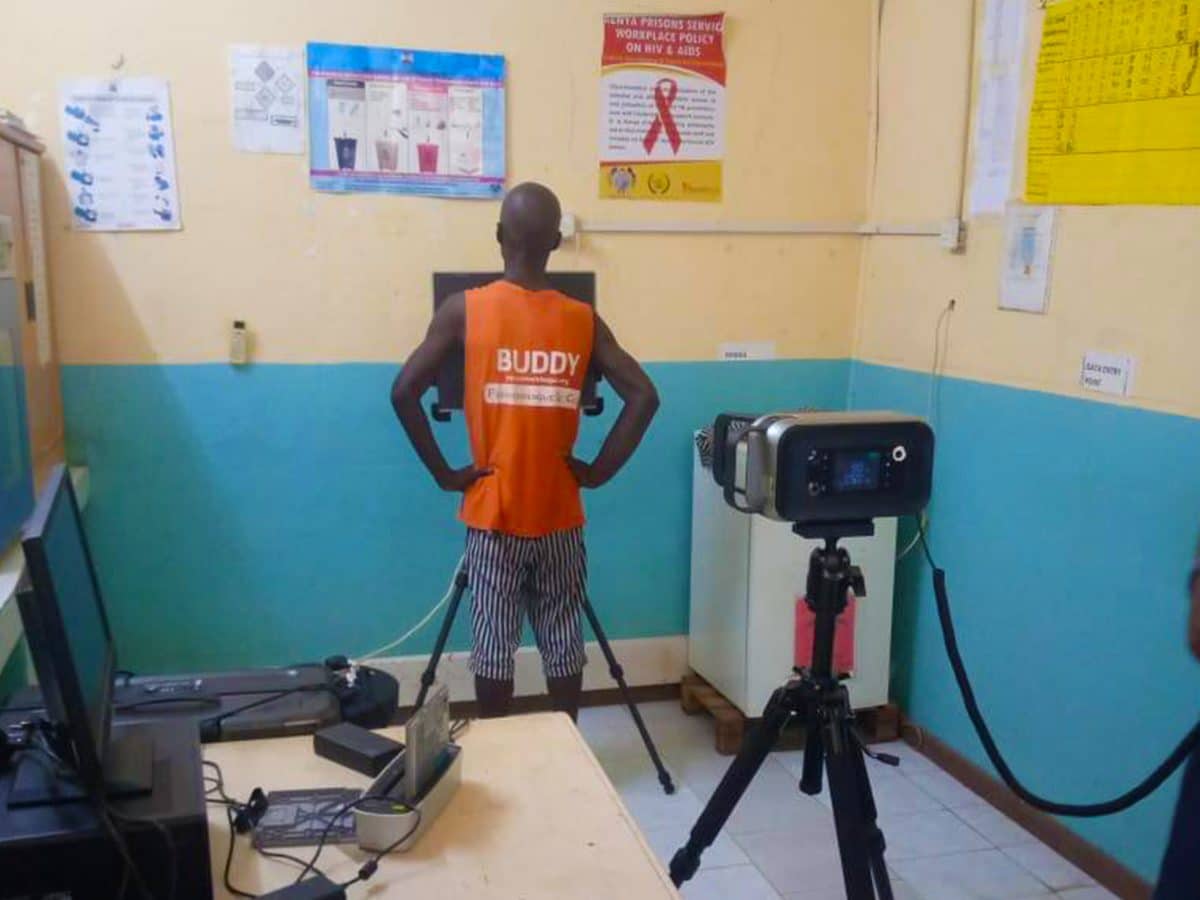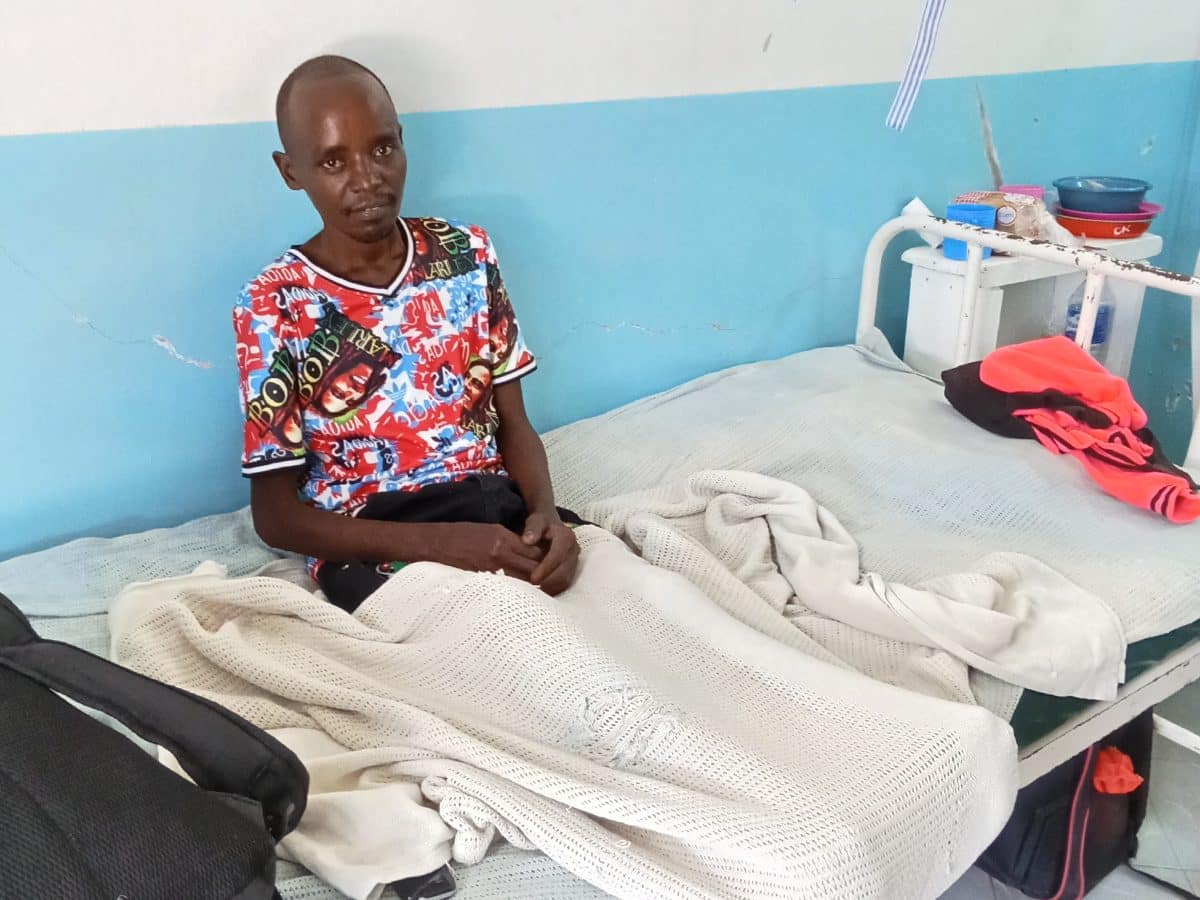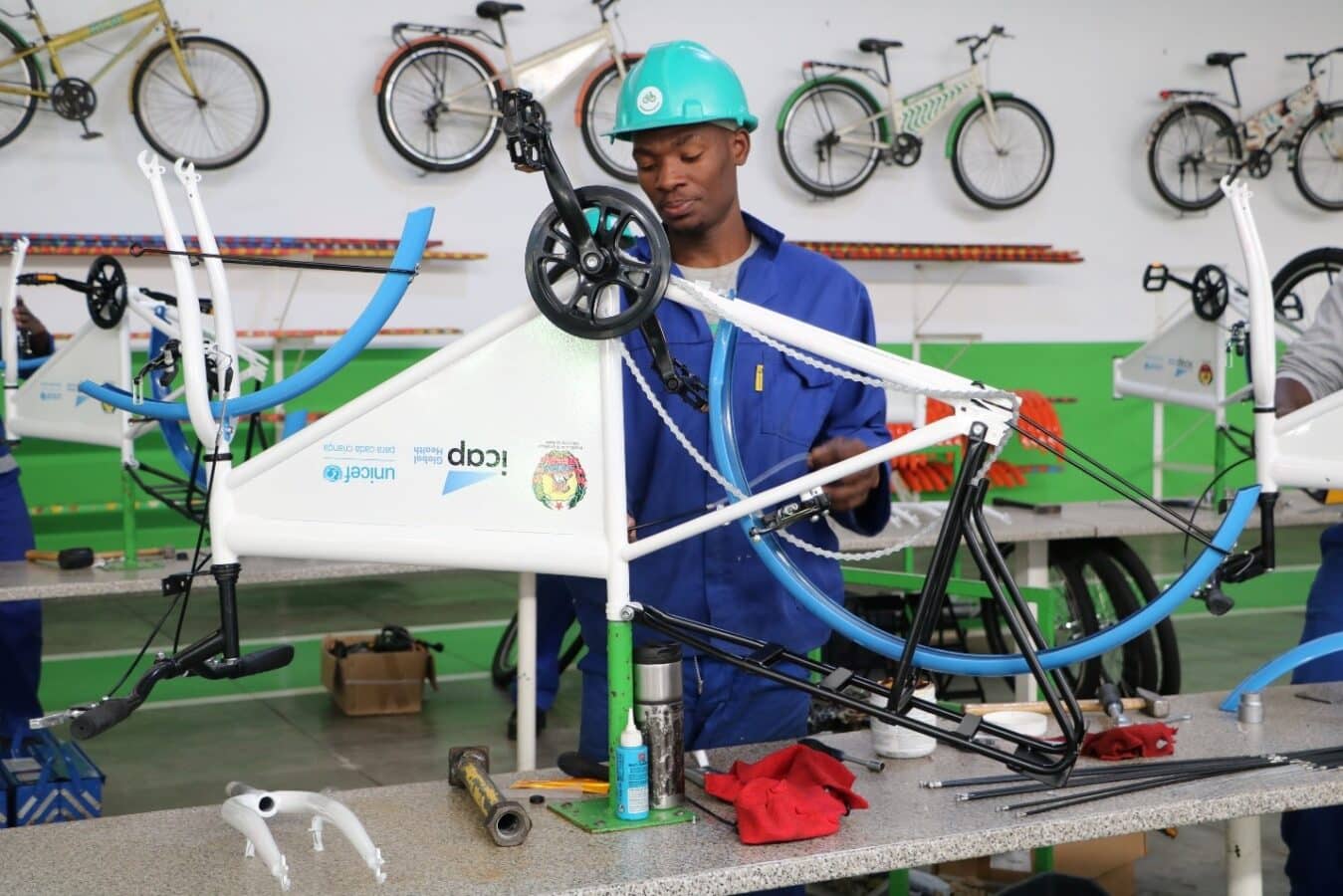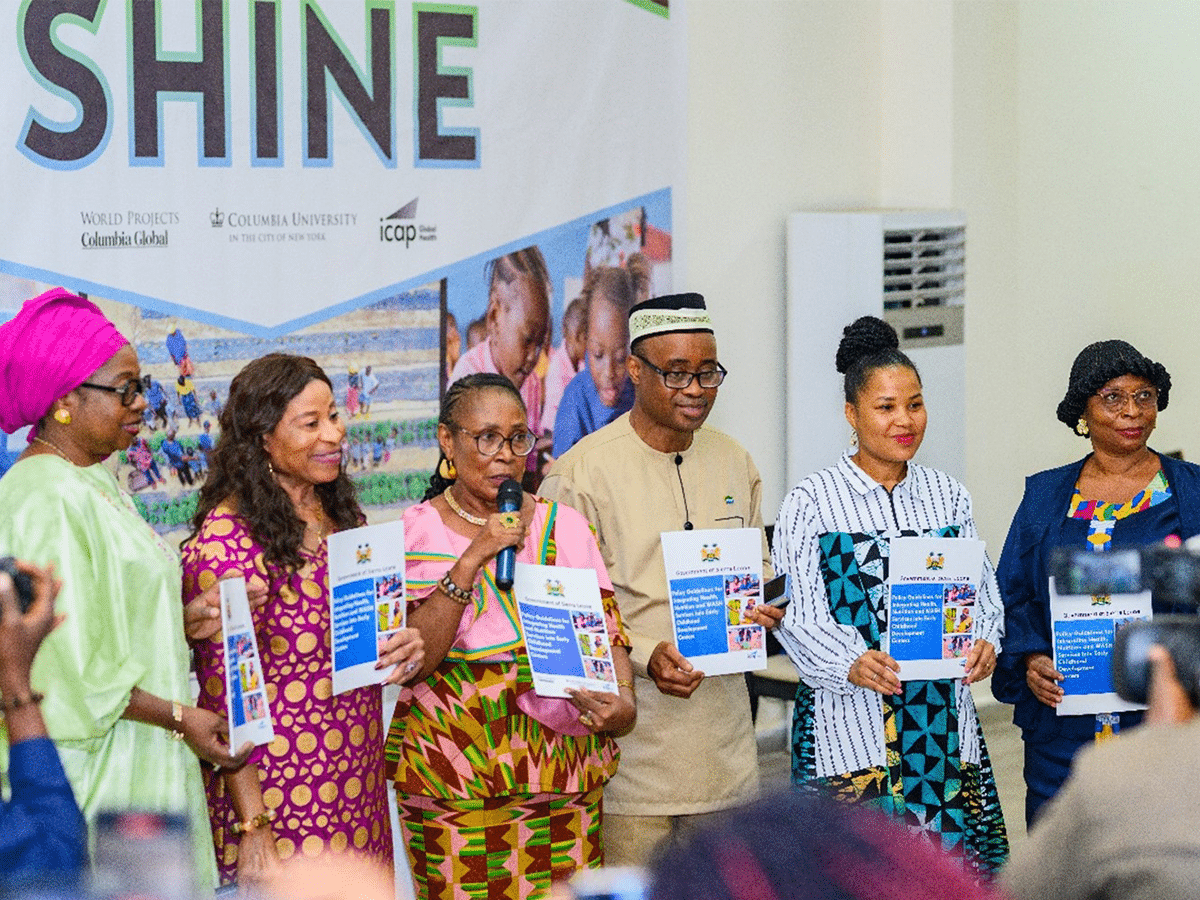“I know I am not alone,” said Leilla Manirakiza. “Hope comes with education and counseling. Not only did I regain hope, but I believed I could help others.”
When Leilla tested positive for HIV, she faced a number of challenges. She felt shame from her status and even decided to stop her antiretroviral treatment (ART) three months after starting it. After learning about – and joining – the peer educator program in her home region of Gitega, Burundi, Leilla found the community she needed to maintain treatment and even help support other adolescents living with HIV to do the same.
The RISE project is a Jhpiego-led consortium supported by the U.S. President’s Emergency Plan for AIDS Relief (PEPFAR) through the U.S. Agency for International Development (USAID). RISE supports countries to achieve a shared vision of attaining and maintaining HIV epidemic control, working with local partners capable of achieving results through sustainable, self-reliant health systems. In Burundi, RISE established the adolescent peer educator program in 11 health facilities in seven out of eight supported provinces in May 2022. Thirty adolescents enrolled in the program were trained by ICAP staff in collaboration with ANSS Gitega (National Association of Support for HIV-positive and AIDS patients) using ICAP’s adolescent peer educator training curriculum, Positive Voices, Positive Choices. Following the training and the launch of the program, peer educators became involved in supporting other adolescents living with HIV (ALHIV), tracking missed appointments and treatment interruptions, providing adherence counselling, scheduling clinic appointments, and supporting healthcare workers to plan and conduct ART adherence club meetings for the youth living with HIV.
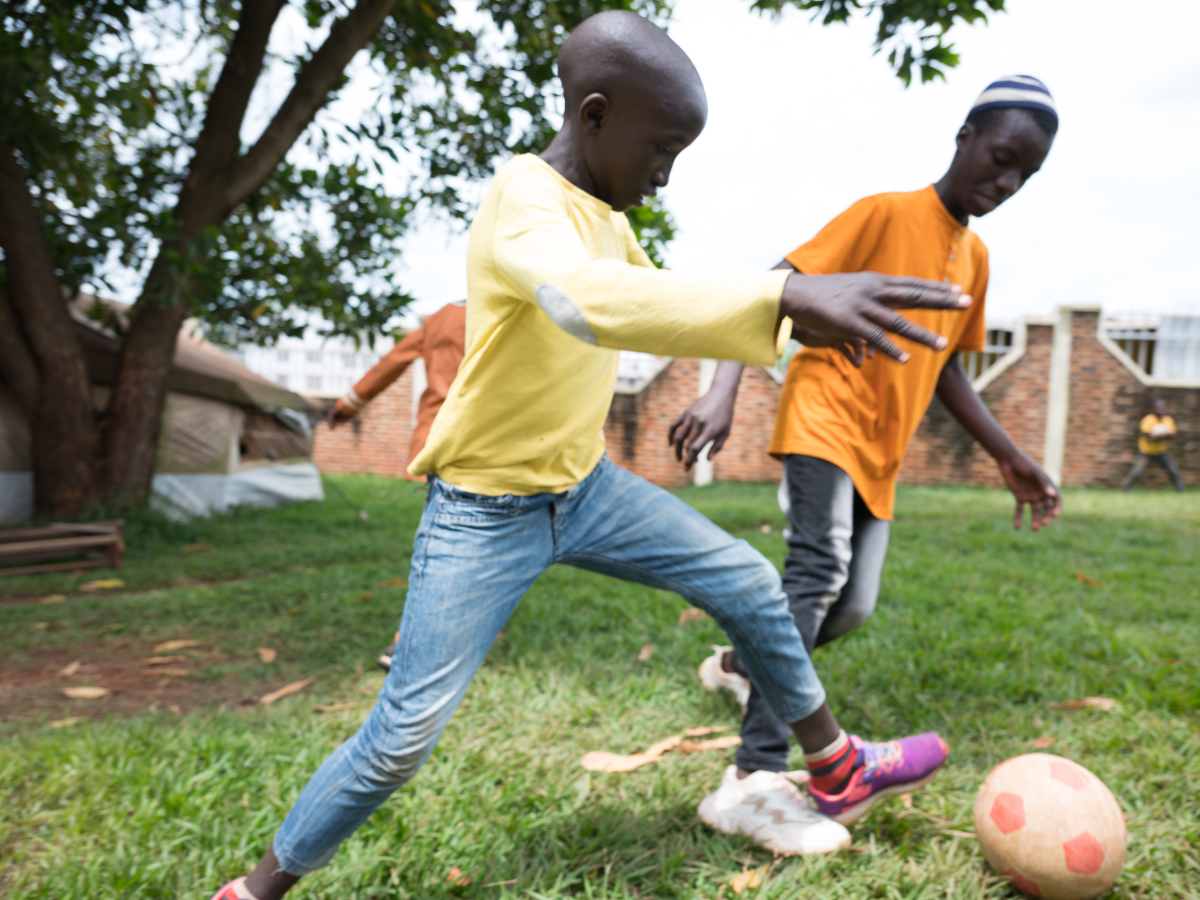
Youth play a game of soccer at their adherence club meeting.
The adolescent peer educators are part of the HIV clinic and quality improvement teams at the 11 health facilities, which means they participate in planning activities and decision-making processes around tailoring HIV services for adolescents. Peer educators follow-up with clients who have missed appointments or interrupted treatment by conducting home visits or messaging clients via WhatsApp groups and texts. They also provide psycho-social and disclosure support, education on sexual and reproductive health and positive living, and support staff to keep records of meetings and youth activities. Currently, RISE supports transportation fees for home visits as well as costs related to phone calls.
By the end of March 2023, 88 percent (315/360) of ALHIV aged 10-19 years on treatment at RISE-supported health facilities were enrolled in the program and being followed-up by peer educators. For all adolescents enrolled in facilities that offer peer education, viral load suppression for ALHIV was 98 percent (341/349) and overall treatment continuity was 99 percent.
“Since the implementation of the program, we’ve seen improved treatment adherence, and thus, increased viral load suppression for young people living with HIV seeking care at our supported facilities,” said Bonaparte Nijirazana, country director for ICAP in Burundi. “It’s very important that we integrate lived experience and knowledge into our programming so that the services we support continue to be relevant and tailored. The Positive Voices, Positive Choices training curriculum offers a comprehensive training designed to help adolescents formally engage in the health care system, providing information on adolescent health, HIV infection, HIV treatment, the importance of adherence to treatment, sexual and reproductive health, communication, counseling, and many other topics.”
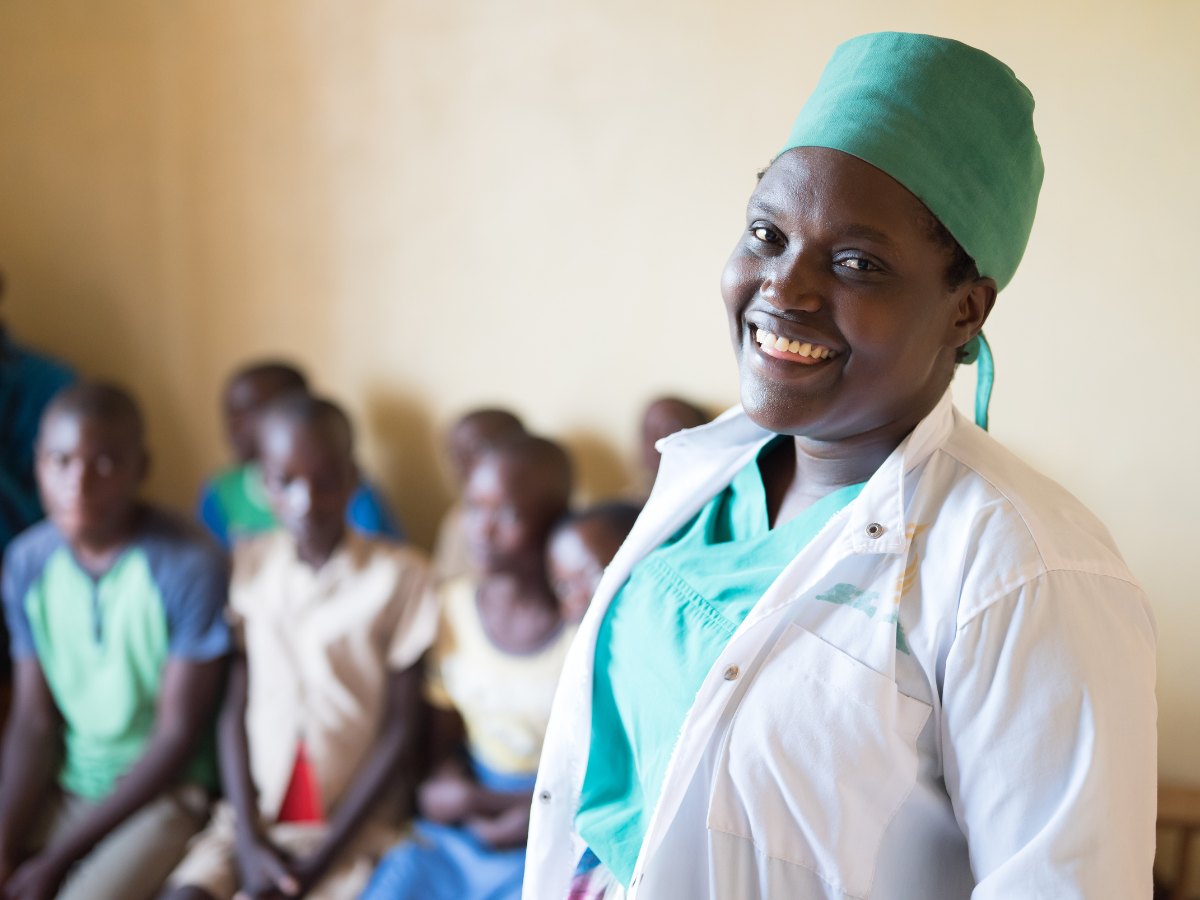
Nurse Jeanne Niyokwizera conducts viral load testing for youth living with HIV at their adherence club meetings, where they also receive their antiretroviral treatment medication.
While adherence club meetings serve as easily accessible spaces for adolescents to pick up their antiretroviral medication, the meetings also help adolescents build community and emotional support with their peers. An important facet of the peer educator program is for members of the group to see one another healthy as a reminder that, when taken as prescribed, antiretroviral treatment can lead to a healthy life. When the groups come together, they socialize, play games, and talk about the future, sharing some of the challenges they face and the health progress they have made.
“It used to be very difficult for these children,” said Jeanne Niyokwizera, a nurse who supports one of the adolescent adherence club meetings in Gitega. “But through these meetings, it’s much easier to administer consistent medication, and, importantly, it helps children thrive with their status.”
“Before creating this group, many had fears and wanted to be alone, and before we began, many were alone,” said Niyonkorera Divine, a peer supporter for an adolescent adherence group that named themselves “Hallelujah.” “But now, they can accept themselves because they know they are not alone. We ask them, what do you want to do in your future life?”
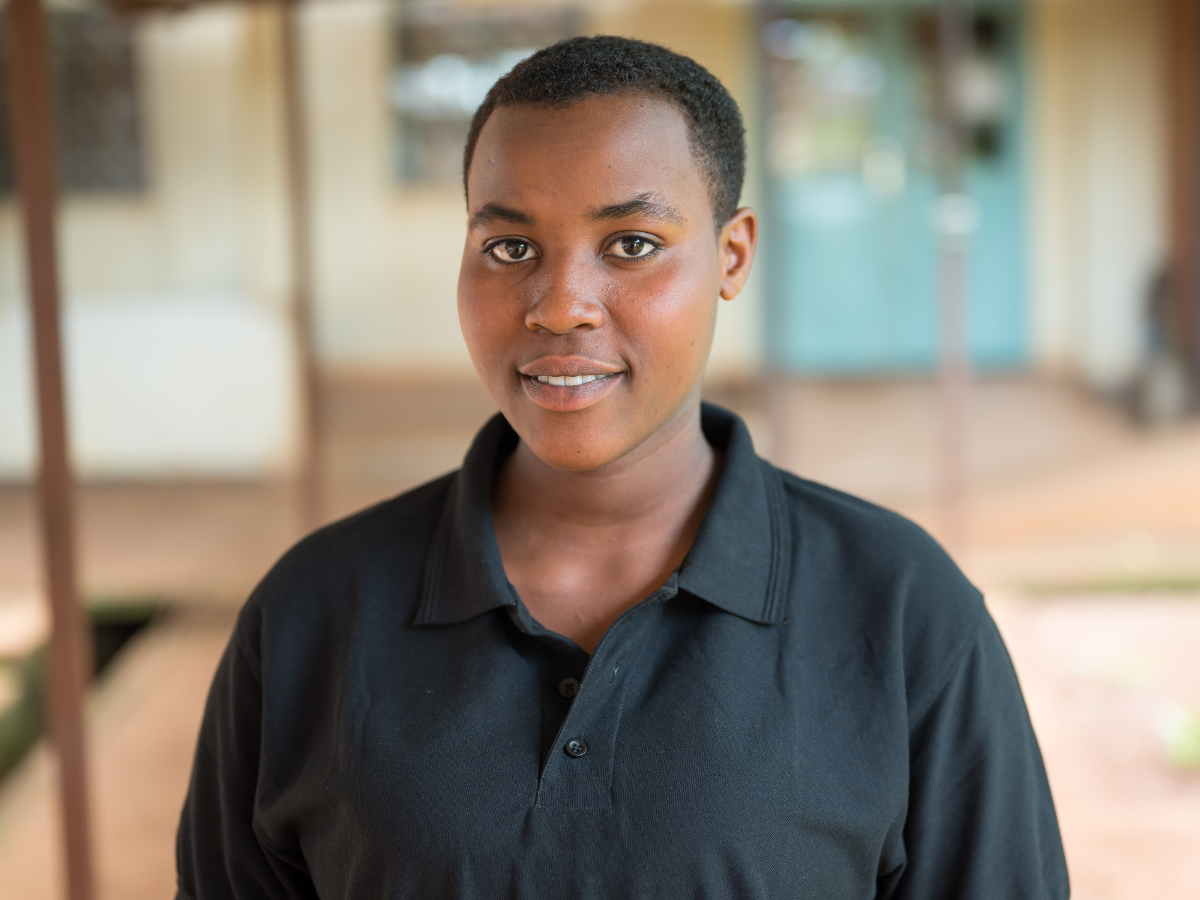
Niyonkorera Divine, a peer supporter.
The peer educators meet regularly to discuss implementation challenges and identify context-appropriate solutions. For example, through the adherence meetings, the peer supporters found that many of the ALHIV enrolled in the program were experiencing stigma and discrimination in their communities, and devised a plan to begin sharing more of their own personal life experiences to ensure their peers understood they were not alone in the fight against HIV.
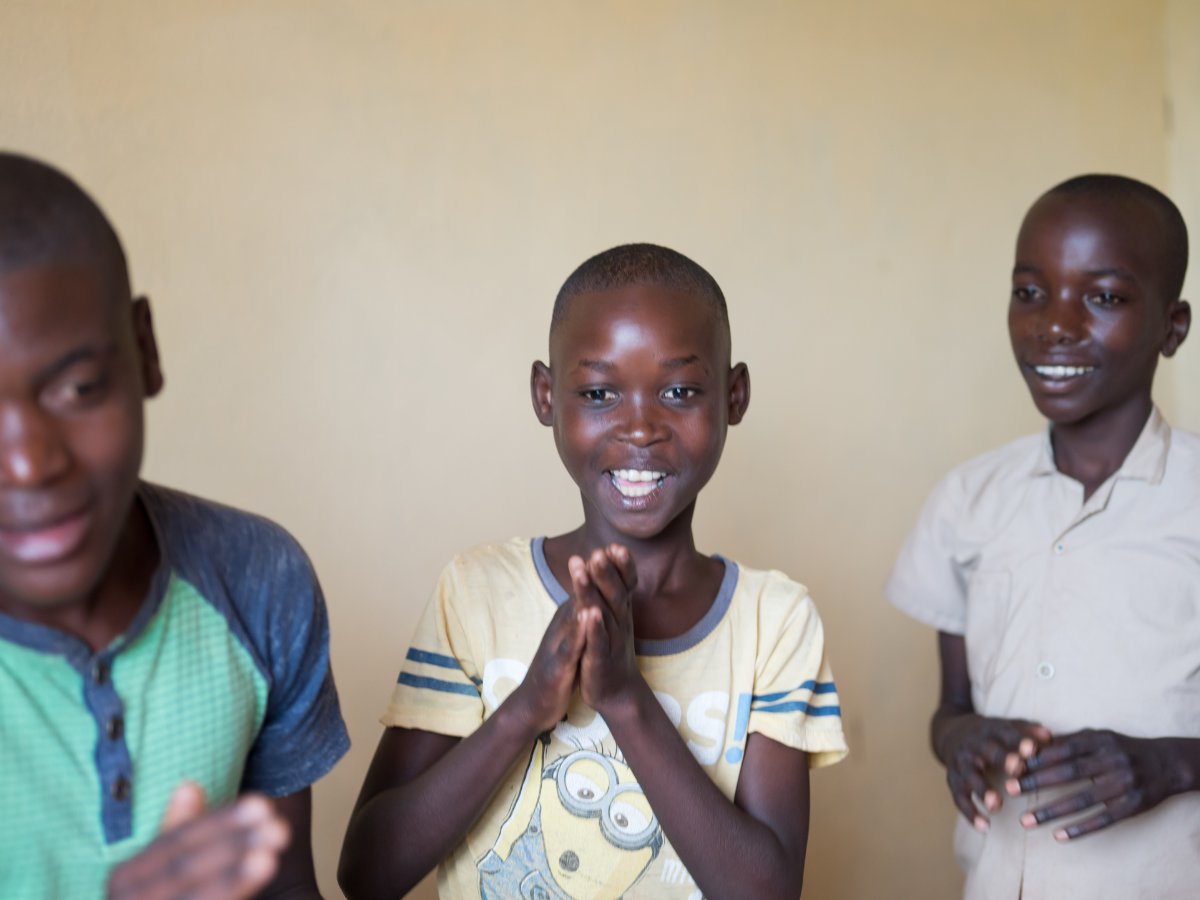
Youth play a game at their adherence club meeting.
“Now, I have freedom to talk about my HIV status,” said Diella Rukiza, a peer educator. “I have hope that I can live longer than I thought before. Due to the program, my viral load is undetectable.”
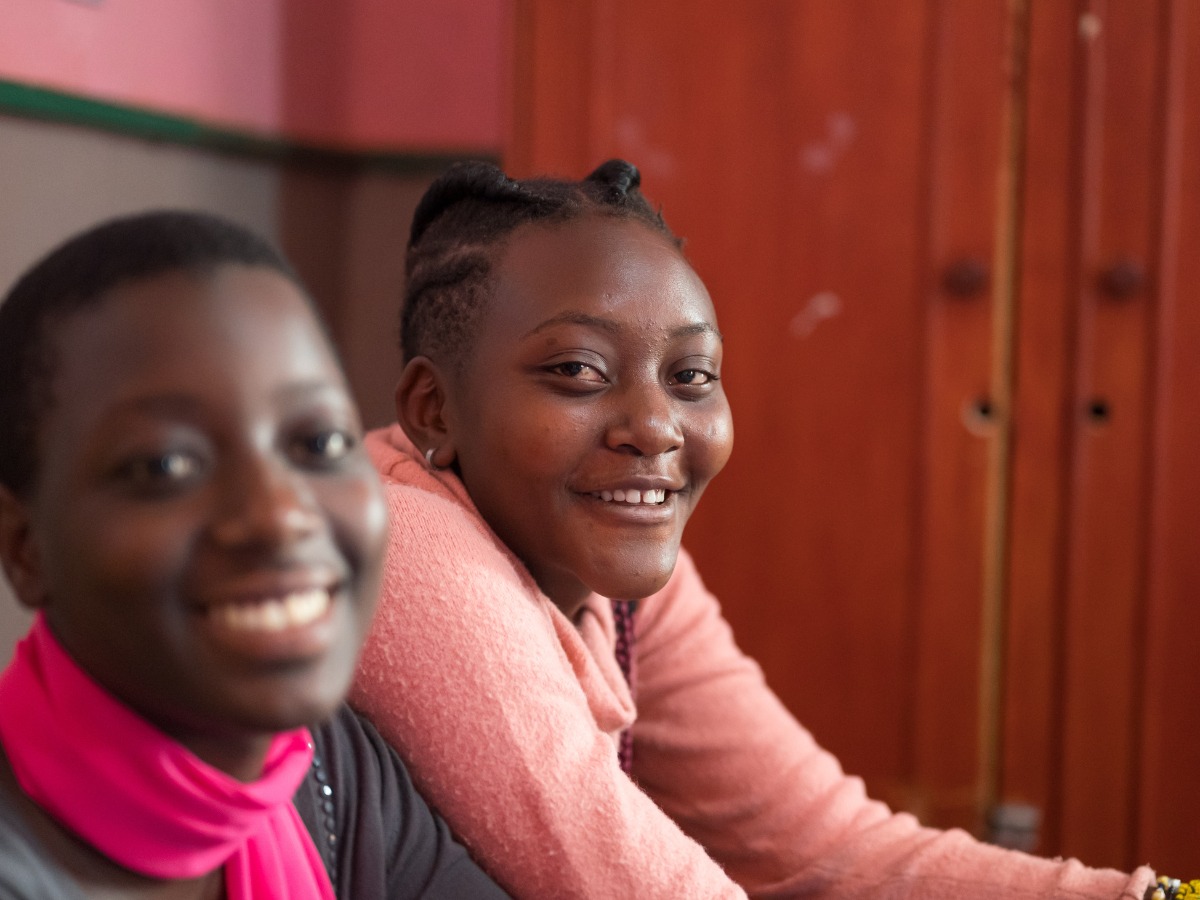
At an adolescent peer support group meeting, peer supporters Diella Rukiza and Leilla Manirakiza (left to right) deliver testimonies about their experiences living with HIV.
At a recent adherence club meeting led by peer supporters, a group of adolescents enrolled in the program formed a wide circle. One-by-one, each individual stood up to proclaim what they wanted to be when they grew up – teacher, actor, doctor, mechanic, they said. The group clapped after each statement, encouraging one another to pursue the futures they had always envisioned.
To ensure ALHIV at RISE-supported health facilities can access peer educator program services, the RISE project is continuing to recruit and train additional adolescents on the Positive Voices, Positive Choices curriculum, with the goal of more than doubling the number of health facilities the peer educator program operates in.
About ICAP
A major global health organization that has been improving public health in countries around the world for two decades, ICAP works to transform the health of populations through innovation, science, and global collaboration. Based at Columbia Mailman School of Public Health, ICAP has projects in more than 40 countries, working side-by-side with ministries of health and local governmental, non-governmental, academic, and community partners to confront some of the world’s greatest health challenges. Through evidence-informed programs, meaningful research, tailored technical assistance, effective training and education programs, and rigorous surveillance to measure and evaluate the impact of public health interventions, ICAP aims to realize a global vision of healthy people, empowered communities, and thriving societies. Online at icap.columbia.edu


